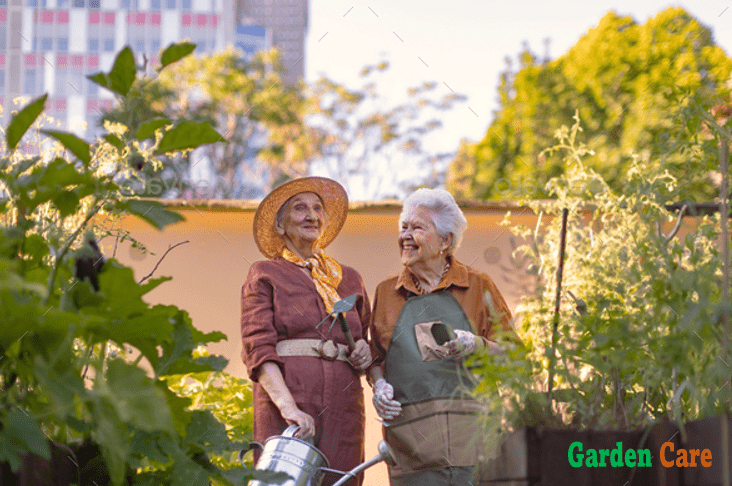When to Apply Fertilizer to Vegetable Garden: Apply fertilizer to a vegetable garden during the spring before planting or in early summer when plants are actively growing. Welcome to the world of vegetable gardening!
One crucial aspect of growing healthy and productive vegetables is fertilization. Fertilizer provides essential nutrients to support plant growth and ensure bountiful harvests. But when exactly should you apply fertilizer to your vegetable garden? Timing is key. Fertilizer should be applied to the garden in the spring, before planting your vegetables, or during early summer when the plants are actively growing.
These periods allow the plants to uptake and utilize the nutrients effectively, promoting healthy root development, foliage growth, and fruit formation. We will explore the best time to apply fertilizer, the types of fertilizer to use, and essential tips for successful fertilization of your vegetable garden. So let’s dig in and discover the secrets to thriving vegetable crops!
[ez-toc]

Understanding Vegetable Garden Fertilization
Fertilizing your vegetable garden is crucial for ensuring healthy and bountiful crops. The right balance of nutrients can make a significant difference in the growth and yield of your vegetables. In this section, we will explore the importance of fertilizing vegetable gardens and the different types of fertilizers that can be used.
Fertilizing your vegetable garden is essential because it replenishes the nutrients that are often depleted from the soil due to plant uptake and leaching. By providing adequate nutrients, you can promote vigorous plant growth, increase fruit production, and improve overall plant health. Additionally, a well-fertilized garden can help plants resist diseases and pests, ensuring optimal yields.
There are several types of fertilizers available for vegetable gardens, each with its own benefits and application methods. Understanding these different types will help you choose the best fertilizer for your garden’s specific needs:
- Organic Fertilizers: These fertilizers are derived from natural sources such as compost, manure, and bone meal. They provide a slow release of nutrients, improving soil structure and nourishing plants over time. Organic fertilizers, being environmentally friendly, are an excellent choice if you want to maintain the health and sustainability of your garden.
- Inorganic Fertilizers: Also known as synthetic or chemical fertilizers, these are manufactured fertilizers that provide a concentrated source of nutrients. They are typically water-soluble and provide fast-acting results. Inorganic fertilizers allow for precise nutrient control and are often used to address specific nutrient deficiencies in the soil. However, overuse or improper application can lead to environmental pollution and soil degradation.
- Slow-Release Fertilizers: These fertilizers are designed to release nutrients gradually over an extended period. They provide a steady supply of nutrients to plants, reducing the risk of nutrient deficiencies or excesses. Slow-release fertilizers are convenient for gardeners who prefer a low-maintenance approach to fertilizing, as they require fewer applications.
- Liquid Fertilizers: Liquid fertilizers are usually mixed with water and applied directly to the plant’s roots or foliage. They are fast-acting and allow for efficient nutrient uptake by the plants. Liquid fertilizers are particularly beneficial when plants require an immediate nutrient boost or when applying foliar sprays.
In conclusion, understanding vegetable garden fertilization is crucial for maximizing the productivity and health of your crops. By recognizing the importance of fertilizing and selecting the right type of fertilizer, you can create optimal conditions for your vegetable garden to thrive.
Factors Affecting The Timing Of Fertilizer Application
Timing is crucial when it comes to applying fertilizer to your vegetable garden. Understanding the factors that influence the optimal timing will help you ensure healthy plant growth and maximize the effectiveness of the nutrients provided. Let’s take a closer look at three key factors that affect when to apply fertilizer to your vegetable garden.
Vegetable Growth Stages
One important factor to consider is the growth stage of your vegetables. Different vegetables have varying nutrient requirements at different stages of growth. For example:
- During the early growth stage, vegetables require nitrogen to promote leafy growth.
- When the plants start flowering, they need phosphorus to support flower and fruit development.
- As the plants begin to bear fruits, they will benefit from a potassium-rich fertilizer to enhance overall plant health and fruit quality.
By understanding the specific growth needs of your vegetables, you can apply fertilizer at the appropriate times to ensure each stage is properly supported.
Soil Nutrient Levels
The nutrient levels in your soil also play a crucial role in determining when to apply fertilizer. Conducting a soil test is highly recommended before planting. This test will provide valuable information about the existing nutrient levels in your soil, allowing you to adjust your fertilizer application accordingly.
If your soil is lacking essential nutrients, you may need to apply fertilizer earlier in the growing season to provide the necessary nutrients for your vegetables. On the other hand, if your soil already contains high nutrient levels, it may be best to delay fertilizer application until the plants require additional nutrients later in their growth stages.
Weather And Climate Conditions
The weather and climate conditions in your region can greatly influence the timing of fertilizer application. Temperature and moisture levels directly affect how nutrients are absorbed and utilized by plants.
In regions with cold climates, it is advisable to wait until the soil has warmed up before applying fertilizer. This ensures that the roots can effectively absorb and utilize the nutrients. Similarly, in hot and dry climates, it may be beneficial to apply fertilizer in the cooler parts of the day to prevent nutrient burn and maximize absorption.
It is also important to consider rainfall patterns. Applying fertilizer before heavy rain can lead to nutrient leaching, which means the nutrients are washed away before the plants can fully benefit from them. Therefore, it is advisable to time your fertilizer application when rain is not anticipated, allowing the nutrients to be absorbed by the plants.
Understanding the vegetable growth stages, soil nutrient levels, and weather conditions will help you determine the optimal timing for fertilizer application in your vegetable garden. By considering these factors, you can provide your plants with the right nutrients at the right times, resulting in healthy and productive vegetables.
Best Practices For Fertilizing Vegetable Gardens
Properly fertilizing your vegetable garden is essential for ensuring healthy plant growth, maximizing yields, and preventing nutrient deficiencies. By following the best practices outlined below, you can optimize the growth and productivity of your vegetable plants.
Testing Soil Before Fertilizing
Before applying fertilizer, it is crucial to test the soil in your vegetable garden. Conducting a soil test helps determine the nutrient levels and pH balance of the soil. This information is essential in selecting the most appropriate fertilizer and applying the correct quantities.
Soil testing can be done using home testing kits or by sending samples to a laboratory for analysis. The results will provide valuable insights on the soil’s nutrient content, allowing you to make informed decisions regarding fertilizer application.
Choosing The Right Fertilizer
After obtaining the soil test results, you can then select the proper fertilizer for your vegetable garden. Fertilizers are often labeled with three numbers, representing the ratio of nitrogen (N), phosphorus (P), and potassium (K). These three nutrients are crucial for plant growth.
Based on the soil test results, you can determine which nutrients are deficient and choose a fertilizer that is specifically formulated to address those deficiencies. Additionally, consider the specific needs of different vegetables and select a fertilizer that provides the required nutrients at the appropriate concentrations.
Applying Fertilizer At The Right Time
Timing is key when it comes to applying fertilizer to your vegetable garden. Generally, it is recommended to apply fertilizer before planting or during the early stages of plant development. This allows the plants to benefit from the nutrients as they establish their root systems and begin to grow.
Applying fertilizer at the right time not only promotes healthy plant growth but also minimizes nutrient loss through leaching or runoff. It is important to follow the instructions provided by the manufacturer regarding the timing and frequency of fertilizer application to avoid over-fertilization, which can be detrimental to your plants and the environment.
Proper Techniques For Fertilizer Application
When applying fertilizer to your vegetable garden, it is essential to follow proper techniques to ensure optimal nutrient uptake and minimize the risk of nutrient burn. Here are some key guidelines:
- Spread the fertilizer evenly across the garden area, avoiding concentrated applications in one spot.
- Avoid direct contact of the fertilizer with plant stems or leaves to prevent potential damage.
- Water the garden thoroughly after fertilizing to facilitate nutrient absorption.
- Consider using organic fertilizers, which release nutrients slowly and promote long-term soil health.
- Monitor the plants’ response to fertilization and make adjustments as necessary.
By implementing these proper techniques, you can ensure that your vegetable garden receives the necessary nutrients efficiently and effectively, resulting in robust plant growth and bountiful harvests.
When To Apply Fertilizer To Vegetable Gardens
Pre-planting Fertilization
Vegetable gardens benefit from a balanced application of fertilizer before the planting process. Pre-planting fertilization is essential for preparing the soil and providing vital nutrients to support the initial growth of the vegetables.
Side-dressing During The Growing Season
During the growing season, it’s crucial to side-dress the vegetable plants with additional fertilizer to ensure continuous access to essential nutrients. This practice helps maintain healthy and vigorous growth, ultimately leading to a bountiful harvest.
Foliar Feeding As A Supplement
Foliar feeding serves as a valuable supplement to the regular fertilization process, allowing for the direct absorption of nutrients through the leaves. By incorporating foliar feeding, vegetable plants can receive a quick nutrient boost, promoting robust growth and enhancing overall crop yield.
Common Fertilizer Mistakes To Avoid In Vegetable Gardens
When it comes to nurturing your vegetable garden, fertilizing plays a critical role in providing essential nutrients. However, making mistakes in the fertilizer application process can lead to adverse effects on your plants’ health and yield. Below are common fertilizer mistakes to avoid in vegetable gardens.
Over-fertilization
Over-fertilization occurs when excessive nutrients are applied to the soil, leading to nutrient imbalances and potential harm to your vegetable plants. This mistake can lead to stunted growth, burning of the plants, and environmental pollution due to the leaching of excess fertilizers into the groundwater.
Under-fertilization
On the other hand, under-fertilization results in insufficient nutrients for your vegetable plants, leading to poor growth, lower yield, and susceptibility to pests and diseases. It’s crucial to understand the specific nutrient requirements of your vegetables and ensure they receive adequate fertilization.
Inappropriate Fertilizer Application Methods
The method of fertilizer application is as important as the type and amount of fertilizer used. Inappropriate application methods such as placing the fertilizer too close to the plant stems, applying on wet foliage, or not incorporating the fertilizer into the soil can result in nutrient loss through runoff and evaporation, as well as potential damage to the plants.
Frequently Asked Questions Of When To Apply Fertilizer To Vegetable Garden
How Often Should You Fertilize Your Vegetable Garden?
Fertilize your vegetable garden every 4-6 weeks to promote healthy growth and bolster nutrient levels.
Can I Just Sprinkle Fertilizer On Top Of Soil?
No, it is not recommended to just sprinkle fertilizer on top of the soil. Mixing it into the soil ensures proper distribution and absorption by plant roots.
What Is The Best Fertilizer For Vegetable Garden?
The best fertilizer for a vegetable garden depends on the specific needs of your plants. It’s important to choose a balanced fertilizer that contains nutrients like nitrogen, phosphorus, and potassium. Organic options, such as compost or manure, can also provide beneficial nutrients.
Experiment to find what works best for your garden.
When Should Fertilizers Be Applied?
Fertilizers should be applied at specific times to maximize their effectiveness. Timing depends on the type of crop and its growth stage. Generally, it’s recommended to apply fertilizers before planting or during active growth phases. Follow the instructions on the fertilizer packaging for optimal results.
Conclusion
To optimize the growth and yield of your vegetable garden, applying fertilizer at the right time is crucial. By understanding the specific needs of your plants and the nutrients they require, you can make informed decisions on when to fertilize.
Regular monitoring and soil testing are key to ensure plants are getting the necessary nourishment. Remember, a balanced approach, based on the specific requirements of your vegetable garden, will help promote healthy and productive plants.
Happy gardening!


